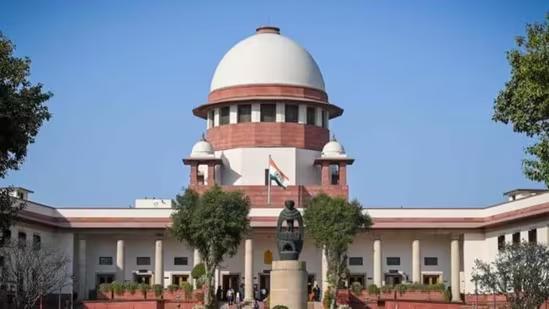
Court Can’t Grant Assent to Bills, Only Guv & Prez Can: Maha to SC
In a recent development in the Supreme Court, the Maharashtra government has argued that courts cannot accord assent to bills and only the Governor and President have the power to do so. This statement was made by senior advocate Harish Salve, representing Maharashtra, during a hearing on a presidential reference regarding whether the court could impose timelines for the Governor and President to deal with bills passed by state Assemblies.
The presidential reference was filed by the president of India, seeking the Supreme Court’s guidance on whether the court could impose timelines for the Governor and President to deal with bills passed by state Assemblies. The reference was filed after the Governor of West Bengal, Jagdeep Dhankhar, refused to sign a bill passed by the state Assembly, citing the need for more time to consider the legislation.
The Maharashtra government’s argument is that the Constitution does not empower the court to accord assent to bills. According to Article 111 of the Constitution, the President has the power to assent to bills passed by both Houses of Parliament, while Article 200 of the Constitution grants the Governor the power to assent to bills passed by state Assemblies. The Maharashtra government argued that the court cannot override these provisions and accord assent to bills on its own.
The Maharashtra government also argued that imposing timelines on the Governor and President would be unconstitutional, as it would infringe upon the executive’s power to take decisions on bills. The government pointed out that the Constitution grants the Governor and President the discretion to take decisions on bills and that they cannot be bound by timelines.
The Maharashtra government’s argument was supported by the Attorney General of India, KK Venugopal, who submitted that the court cannot impose timelines on the Governor and President. Venugopal argued that the Constitution grants the Governor and President the power to take decisions on bills and that the court cannot interfere with the exercise of this power.
However, the Maharashtra government’s argument was opposed by senior advocate Rajeev Dhavan, who represented the West Bengal government. Dhavan argued that the court has the power to impose timelines on the Governor and President, as it has the power to issue directions and guidelines to ensure that the executive acts in accordance with the Constitution.
Dhavan pointed out that the court has previously issued directions to the executive to take decisions on bills within a certain timeframe. For example, in the case of the Presidential Reference filed by the President of India in 1997, the Supreme Court directed the Governor of Assam to take a decision on a bill passed by the state Assembly within 30 days.
The Supreme Court has reserved its judgment on the presidential reference and is expected to deliver its verdict soon. The judgment is likely to have significant implications for the functioning of the legislative and executive branches of government in India.
In conclusion, the Maharashtra government’s argument that courts cannot accord assent to bills and only the Governor and President have the power to do so is a significant development in the ongoing debate over the powers of the court and the executive in India. The outcome of the presidential reference is likely to have a significant impact on the functioning of the government and the legislative branch in India.






